This episode of the Crime Cafe features my interview with crime writer and CinemaSins co-creator Jeremy Scott.
Learn more about how he became a comic film commentator and about his debut novel, When the Corn is Waist High.
Before I bring on my guest, I’ll just remind you that the Crime Cafe has two eBooks for sale: the nine book box set and the short story anthology. You can find the buy inks for both on my website, debbimack.com under the Crime Cafe link. You can also get a free copy of either book if you become a Patreon supporter. You’ll get that and much more if you support the podcast on Patreon, along with our eternal gratitude for doing so.
We also have a shop now. Check it out!
Download a copy of the transcript here.
Debbi: Hi everyone. Today my guest is the co-creator and narrator of CinemaSins, a YouTube channel dedicated to movie-related comedy, and a highly successful one at that. He's also the author of the Able Series about a group of disabled kids with superpowers—which I definitely have to read—and a crime novel called When the Corn Is Waist High. An intriguing title, I have to say. It's my pleasure to introduce writer and entertainer, Jeremy Scott. Hi, Jeremy.
Jeremy: Hi there. Thank you for having me.
Debbi: It's a pleasure to have you on. Good to see you. When people ask you what you do, what do you tell them?
Jeremy: Generally depends on my read of them because younger generations are going to get it immediately. I'm in my 40s, so anybody about my age and younger, I'll probably just give them the honest answer. I run a YouTube channel and I also write books. Anyone like my mom's age, I might just kind of take a read of them and go, I'm an author or I'm an entertainer, and try and keep it …. Well, because I've had several conversations where they just ask question after question after question, because to some people, the idea that you can upload videos to the internet and make money from it is just mind boggling. So I'm trying to save everybody's time and those interactions, but still convey the truth.
Debbi: Yeah. Yeah. I tell you, there is so much that you can do these days. There are a lot of people who really, really do not get it, who are my age, and frankly, I get it completely
Jeremy: Yeah, clearly.
Debbi: I totally do. When did you start CinemaSins and what inspired you to start it?
Jeremy: Well, this requires a tiny bit of a backstory. My business partner in CinemaSins is named Chris Atkinson, and we met in '99 working at a movie theater. We were both managers who worked in the booth. The movies would come in on separate reels, and we would have to build the movies into one giant print, and then we would have to watch it as part of our job to make sure we had not made any mistakes and there wasn't anything wrong with that copy of the movie.
We were also both big fans of Mystery Science Theater 3000 when we were in college, so every Thursday night, he and I would throw on a movie that we had built and sit in the audience and crack jokes the whole time, and that was, in hindsight, the genesis of what became CinemaSins. But it wasn't until December 2012, we uploaded the first CinemaSins video. We just had both done a lot of writing in the area of online video, video marketing, even Codex, and some of the technical stuff behind video online, and we had just watched so many of these YouTube channels and creators like Epic Meal Time and Freddie Wong, and just having so much fun creating, because YouTube made it available to anyone who had the talent and the time and the gear to make a video.
So we tried for months. We tried four or five different ideas, channel concepts. Nothing really ever stuck until the CinemaSins one, and people ask me all the time what I did to help make that successful. And I tell them nothing. I made a video and somebody came along and posted it to Buzzfeed and at the time—I don't know if it still is—at the time, Buzzfeed was like a reader voted up and down thing. So like the top story was one that was getting the most reads and that it was up in the top 10, and that basically drove everything. A few videos after that, Kevin Smith, a filmmaker tweeted about us, and that brought in a huge wave. And from there, I can't explain the growth, but we're happy for what we've been able to do for the last 10 years.
Debbi: Well, that's fantastic. That's absolutely fantastic. I was going to ask you about how a person can develop a 9 million subscriber following, but I think a lot of it has to do with luck, who sees you, where you get placed in various online publications, things like that. It's amazing. I assume you monetize your YouTube channel. Is it through ads, or is it through other means?
Jeremy: We would call it ads either way. YouTube runs ads on our videos, both at the beginning and what's called a mid-roll ad in the middle of a video, and we get a percentage of those. And then we also can sell sponsorships so some of our videos might open with a 30 second "this video is brought to you by" Nature Box or what have you. We have had a handful of them over the years, but beyond that, that's really the only way we monetize the YouTube videos.
Debbi: And you have a podcast as well?
Jeremy: We do. The videos, we're playing a character who's a know-it-all who's nitpicking movies, and so the podcast is hopefully something that shows our love of movies and how genuine it is. It's called Recotopia and every week it's basically a movie club, movie of the week club. We take turns picking a movie that we think has been underseen or underappreciated, and then we meet and discuss it, and we have both a live audience online and then you can download or watch it on YouTube later. It's just an hour-long celebration of recommendations of movies and TV shows and stuff.
Debbi: Oh, that's fantastic. I just love it when people highlight an underappreciated movie, because there are so many out there that are good that you don't hear about that much.
Jeremy: Yes.
Debbi: Especially some old ones.
Jeremy: Oh, yeah. Oh, yeah.
Debbi: Yeah. Have you ever thought about doing a scripted podcast, just out of curiosity?
Jeremy: I guess I would have to answer that yes. I have thought about it, but I don't think I've entertained it too seriously. I have a lot of ideas. I have a lot of things I'm in the middle of writing all the time. That is something that I would enjoy trying my hand at at some point, but I haven't really gone beyond that. It's just on a back burner list of things I might like to do someday.
Debbi: We may need to talk at some point. We'll see. You might be interested in what I have to say. Tell us about your books, the Able Series. I think it's a really fantastic premise you've come up with.
Jeremy: Thank you.
Debbi: What inspired you to write it?
Jeremy: I'm not sure. The idea came to me years before I wrote it. I self-published the first edition in 2015 of the first book, but I wrote a first page synopsis idea/thing in 2009 and showed it to my wife. There were a lot of differences in what ended up coming out as a story, but the idea of a disabled person that also has superpowers was the central premise.
The early draft, it was going to be an older person who was a judge, but once I realized it needed to be kids then I was able to sort of play in an area that I don't think a lot of stories have been able to, where they are outcast because they're stuck in the middle of these two groups. They live in a superhero society, but they're not fully accepted because their disabilities impact how they can use their powers, but the non-powered people don't really respect them either because they have superpowers. The main character is a blind kid named Philip, and his power is telekinesis.
So the question is, how does he move things with his mind that he's not able to see? And through the adventure, he figures out how. So, I thought it would be fun to sort of play with coming of age, where you're stuck in between those two worlds.
Debbi: Yes. That's an interesting time period.
Jeremy: Yes.
Debbi: In one's life.
Jeremy: Yes, absolutely.
Debbi: How many books have you published in the series?
Jeremy: There are four books in the Able Series, and it was always intended to be four. The first one is when they're entering middle school, the second one, they're in high school, the third one, they're in college, and then the fourth one jumps ahead 25 years. They're all middle-grade-aimed, intended for pre-teens and teenagers. So When the Corn Is Waist High won't tonally compare in any way to these Ables books, which are aimed at kids and trying to be empowering. The murder mystery book is absolutely an adult-aimed novel.
Debbi: I was going to ask you about that. Tell us about that book. What is that book about?
Jeremy: It is set in the early eighties in a rural Indiana farm town in the summer. It's fictional, but it is modeled very much on a town I grew up in in the eighties in Indiana called Ossian, which at the time had about 2,000 people and didn't have a stoplight or any fast food, and was just the tiniest little town.
The main character is a priest of a local parish, but he's also been elected sheriff, and then a serial killer starts murdering people, and he has to learn how to be a real cop in a real hurry instead of just handing out speeding tickets and doing confessions.
So that's basically the premise. There's a lot of local detail that I probably did a little too much of because I just had so much fun writing this place that is real to me, even though it's fictional on the page. That's pretty much all I would really tell anybody. Maybe I would add, it's not conventional in any way, but that's your basic premise.
Debbi: Well, I think that's really cool. All of these books sound really cool to read. I have to check them out.
Jeremy: Thank you. Thank you. I mean, there's so many books out there. It's just like TV shows and movies. There's so much of it out there, nobody's ever going to get to everything, so...
Debbi: Exactly.
Jeremy: Read what you can while you've got the time to read, and if it happens to include my books, that'd be awesome.
Debbi: Well, it just sounds so intriguing and there's so much of it that resonates with me, I have to say.
Jeremy: Great. That's great.
Debbi: Let's see. Is there an author or creator that has most inspired your work?
Jeremy: Boy, I don't know about that. Certainly Andy Weir who wrote The Martian, in that he was just writing and uploading online for his space nerd friends, and then eventually enough of them were like, dude, this is good. You need to publish this so he self-published it and did well enough that a big publisher came in and bought it, and then he got a movie made on it.
I had a chance to interview him on a former podcast that I hosted, and he's this fascinating guy. I've read all of his books, but just the idea that he was like me at one point, just a guy on the internet who enjoys certain content and had decided to try and create some himself. That's very inspiring to me. And maybe also the way he writes.
I don't know if you've read The Martian, but there's a very straightforward sarcasm to the main character that I resonate with a lot, because my own internal monologue is self-effacing, sarcastic barbs. So I would say he probably inspired me the most in terms of getting off my butt and doing the work.
Debbi: Wow. That's really something. It works that way for me too. I have this sarcastic inner part, but for me it's Ray Chandler.
Jeremy: Okay. Yeah.
Debbi: Or say, Ross McDonald. They were both very sardonic, but I like that example though, Andy Weir. That's great, because I've seen the movie The Martian, but I haven't read the book … yet. Yet. What do you think is the most important skill or quality for a person to have as a creator?
Jeremy: Well, what I've found, whether it's making videos or writing books, you have to be able to edit yourself. You have to be able to make hard decisions, and I did not coin this phrase, but I have told a lot of people who have asked me for advice, if you don't cut something that's hard for you to cut, if you don't cut something that you love, you probably have not cut enough out of your story or your video.
There's something in every book that I've published that I really liked, that I wanted in there, but just didn't make sense, didn't work with the rest of the story. And rather than forcing it, I made a tough decision and cut it. But what I try to do in those instances when you do cut something you love is set it aside, write it in a more generic manner, and it might be something you could use in another piece down the line.
Debbi: Yes, yes, absolutely. Kill your darlings or whatever that is. Kill your babies.
Jeremy: Exactly. Exactly.
Debbi: And what are you working on now?
Jeremy: I have three projects I'm working on now, and by that I mean, I've got probably 50 or 60 documents that are in some stage of a synopsis sentence or I've done some writing, but there are three that I'm actively writing on.
The closest to completion and the one that's probably most on my heart right now is a collection of science fiction short stories. I never really thought of myself as a short story guy, but having written five novels prior to that, I found a freedom in the short stories where I don't have to give you all the information. I don't have to give you all the exposition. I can just start you out in the middle of the action, but then I can switch genres for my next short story, and I've had a lot of fun.
I have to make some tough decisions there in terms of which pieces I want to include in the collection, and I have an idea on where I might go to get that published.
The other two that I'm working on are both much less further along. One would be a possible sequel to When the Corn Is Waist High. I have to figure out how that would look, and then the other one would be a fictionalized memoir. My dad was a preacher and we moved around a lot, so it would basically be a fictionalized version of me, much the way that Lady Bird, the movie, was a fictionalized version of Greta Gerwig's upbringing.
I have about three or four chapters of that that I've tinkered with, so that's really what's on my plate right now but you never know. I write what takes the center of my brain, what I can't stop thinking about. That's what I end up writing about, and a new one might come along tomorrow.
Debbi: Yeah, I know what you mean, but when those right ones come along, they just kind of stay with you, don't they?
Jeremy: They do. They do.
Debbi: I mean, it's like, oh God, I have to go back to this one now. I forgot about this. I have to do this one now.
Jeremy: Yeah. It begins to nag at me for a while.
Debbi: Yeah, yeah, definitely. For sure. Is there anything else you'd like to add before we finish up?
Jeremy: No. I guess just a general encouragement that I think there were a lot of people out there who have thought about writing a book, and if you've thought about it, if that stayed with you a little bit and stayed in the center of your mind, give it a shot. My niece is writing a book, my sister-in-law's writing a book, and a friend of mine's wife is writing a book. I don't know how much influence I had over any of those people, but I did encourage all three of those people to write their ideas down, and the world needs more good books. Don't be afraid to consider yourself a possible author, just like Andy Weir did.
Debbi: There you go. Amen to that. Great advice. Well, I want to thank you for being here. It's been so fun talking to you and listening to your story, because it's really inspired me.
Jeremy: Thank you.
Debbi: Honest to God, so thanks again for being here. And I just want to say before we sign off here, before I replace myself, there we go. I knew I could do it. Technology, you gotta love it.
Jeremy: You gotta!
Debbi: So I just wanted to say before I finish up that after the first of the year, all of my eBooks are coming off of Amazon. I am just taking them all off. You can get my print books on Amazon, and you can get my audiobooks there too. They'll continue to be available on Amazon. However, I have some matters I need to straighten out with some company or other, either Amazon or Draft2Digital or both—I’m not sure which—but we need to do some talking or communicating or something.
Anyway, my ebooks will also be available for half price on Smashwords after the 17th, I think of December.
I'm not sure when this is going up. They may be available now for half price for all I know. I have to sit down and work out my schedule because I've got podcasts literally lined up like planes circling a landing field. They're waiting for the signal that they can come in.
At any rate, you can also buy direct from me, from my website. You can get my ebooks there. All you have to do is click on “My Bookstore” and you'll find print books as well as ebooks and audiobooks for sale.
With that, I'd also like to thank my Patreon supporters and everyone who supports the podcast in any way. All my listeners, anyone who leaves a review, thank you so much. With that, I'll say take care, happy holidays and until the next time when my guest will be F. R. Jameson, have a good day, and happy reading.
*****
Check us out on Patreon!

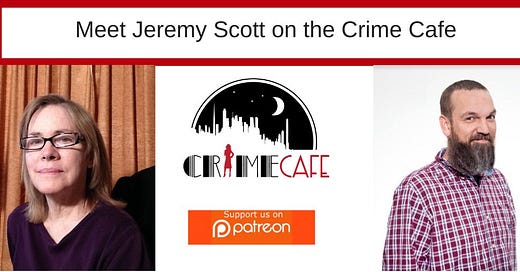
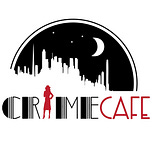

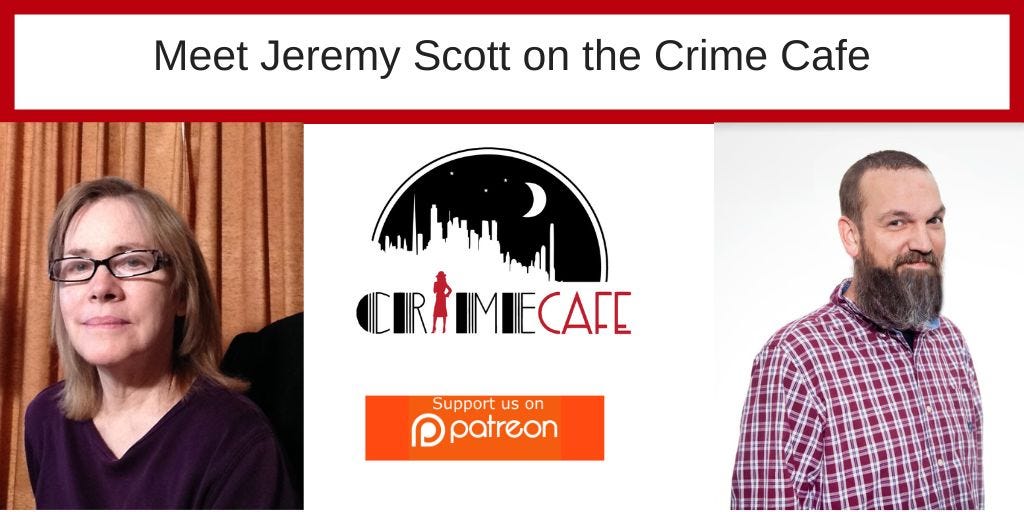
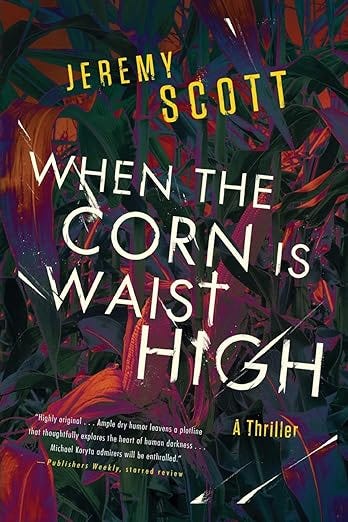




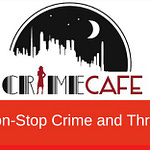
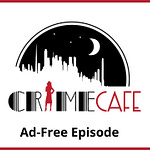
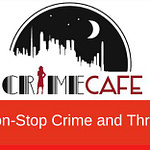

Share this post